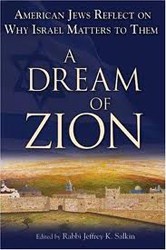How do Jewish rituals evoke a sense of awe and God’s love by activating the brain’s sympathetic and parasympathetic systems? In this fascinating book, Dr. Andrew Newberg, Director of Research at the Marcus Institute of Integrative Health, and Dr. David Halpern, an Orthodox rabbi and resident at the Sidney Kimmel Medical College at Thomas Jefferson University, seek to answer these and other questions through an examination of the field of neurotheology and its intersection with Judaism. Newberg and Halpern offer a look at an emerging field that is impacting academia, science, and religion.
Standing at the intersection between neuropsychology and religion, and utilizing an integrative examination of consciousness, psychology, anthropology, the social sciences, spirituality, faith, and theology, the authors review Judaism’s basic concepts, beliefs, rituals, and prayers, and discuss how they activate certain brain processes. Research for the book included interviews with rabbis of all denominations, and even testing their own brains’ reactions to reciting the Shema prayer (through brain imaging, they found that the recitation activates more frontal lobe activity).
This book serves as both a useful primer on the core tenets and traditions of Jewish living, a review of its major thinkers and their teachings (including those of the rabbis of the Talmud, Maimonides, Rabbi Nahman of Breslov, among others), as well as an accessible introduction to a seemingly limitless area of study. Newberg and Halpern even provide brief examinations of the intersections between neurotheology and other world religions, including Christianity, Islam, Hinduism, Buddhism, and Taoism. This window into Judaism and its relationship to the brain is sure to inspire expanded research both within and beyond the Jewish community.
Dr. Stu Halpern is Senior Advisor to the Provost of Yeshiva University. He has edited or coedited 17 books, including Torah and Western Thought: Intellectual Portraits of Orthodoxy and Modernity and Books of the People: Revisiting Classic Works of Jewish Thought, and has lectured in synagogues, Hillels and adult Jewish educational settings across the U.S.





